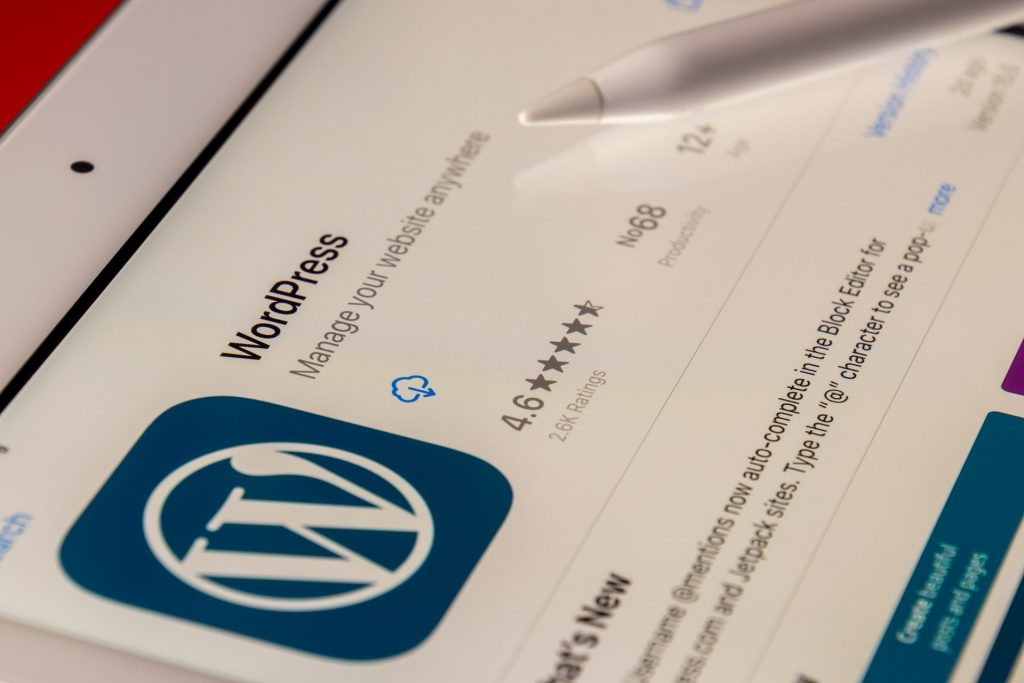A website is a powerful tool for any business, and dietitians and nutritionists are no exception. With the right website, you can reach more potential clients than ever before. But how do you create it?
In this article, we will give you step-by-step instructions on how to create a website for dietitians, nutritionists, nutrition coaches and nutrition clinics that actually sells and brings you clients.
So let’s get started!
Choose a domain name
The first step is to choose a domain name for your website. You will want something that represents the type of business you are in and what separates you from other dietitians/nutritionists practicing in your area.
The domain might have your name in it or you might want to choose a brand name that will appeal to your target market.
A few examples are:
- Melissa Smith has chosen intuitiveeatingmindset.org which is a brand that clearly explains what she does but right below the logo is her name
- Kirsten Reichner has chosen kirstenreichnerrd.com – her name and the RD (Registered Dietitian) at the end
You shouldn’t get stuck at this point; just choose one and move forward.
Where to buy the domain
- Bluehost is one of the best options
- we’ve had a good experience with EuropeRegistry (don’t let the name fool you, they’re good for .com domains and the company is registered in Australia)
- Namecheap is an inexpensive domain registrar with a one-year term.
- GoDaddy is another popular option
Here is a comparison between different providers.
Choose the right platform for your website (WordPress or Wix)

Before anything else, ask yourself what your desired outcome with your new web presence is – do you want to offer content-based pages or just provide informational pages? If so, then WordPress might be best suited for your needs – if not then Wix or another similar platform may be.
From my perspective, WordPress works best for content websites and has more SEO options. It is a little bit more expensive but it is the best for content-based websites.
Another decision you might face is whether to use WordPress.com or WordPress.org.
WordPress.com is a hosted service, which means they will host your website for you and take care of the technical aspects. If you are not very technical and do not know how to use FTP and upload files, then wordpress.com is for you – it will be a little bit more expensive but they take care of everything technical.
WordPress.org is free to download and install- however this means that one has the responsibility of hosting their site on their own server or paying for someone else to do it.
It may be more difficult to set up but once installed on your server there are fewer limitations – you can install any theme you want and any plugin you want.
Host Your Website

If you choose wordpress.com or Wix, you do not have to worry about hosting since these are hosted platforms, they would take care of everything.
If you choose wordpress.org, then before anything else it is a good idea to purchase your domain name and hosting from the same provider.
A few great companies that offer WordPress hosting are:
WP Engine (most expensive but great quality)
Along with hosting the website you also get personalized email addresses (something like yourname@yourdomain.com).
What are the pages you need (homepage, about page, services, blog, contact)
Homepage
The homepage is the most important page because most of the visitors will see it the first time they visit your website.
The biggest purpose of this page is to respond to the question “The only purpose of this page should be to respond to your visitors’ question: “Do I need this?”
It should include a hot intro that describes what the visitor can get from you, a strong promise (like “I will help you figure out what’s your ideal weight and how to get there”), a brief of your services, who are you and why they should trust you, testimonials from your happy clients and a strong call to action like “Start working with me” or “Contact me now”.
The homepage should also have a lead magnet – A lead magnet is a bribe for your visitor to give you their email address.
What could be the most valuable bribe? It’s YOUR time, of course!
Offer something that will help them solve an issue they have now and in return, they’ll give up their precious information (email). It could be just a simple calculator, like an ideal weight calculator, or an ebook, report, or whatever they might use.
Reuse the call to action and lead magnet on every page of your website.
The About me page should contain
- a short summary about you and what is your experience
- list of qualifications, like diplomas or certifications (if any)
- a good looking picture of yours
Services page
The services page is where you list your prices, briefly describe the method that you use to provide counseling or coaching or other services of your choice (such as weight loss plans), mention how often do they need it, and any package deals for those who want more than one session with you.
Don’t forget to add some testimonials and repeat the call to action below every service. Don’t make the user scroll to contact you.
Contact page
Include contact information for the client to fill out their email address. Include a phone number if possible as well so that they can reach you.
Blog

Are you wondering if you should have a blog? Of course. Here’s why.
The blog is where you can use your expertise to provide actionable advice and content that will educate people. You should post at least once a week on topics related to health, nutrition, weight loss, etc.
This will establish you as an expert in the field and help you to generate traffic to your website. You should also ask your visitors what are the problems you’re having then write content around that topics.
Don’t forget to add the call to action and the lead magnet on every blog post.
Add actionable items to any blog post.
Ask for feedback on blog posts.
You should have the comments activated so that people can leave their feedback and ask you more questions. Make sure you respond to these questions.
Utilize tools like Google Analytics to see where your audience is coming from and what they’re looking for. This will help you create more blog posts with targeted content on related topics.
Conclusions
Building a website for your nutrition practice or nutrition clinic is not an easy task, but it’s important to create one if you want your business to grow. It is one of the most important steps you need to start your online presence as a nutrition professional.
It takes time and patience, but with the right knowledge and information on how to do this, anyone can create a website for nutrition professionals in a pretty short time.
What is the biggest problem you’re facing when it comes to building or improving your website as a dietitian, nutritionist, nutrition coach, or nutrition clinic? Post it below in the comments and we’ll do everything we can to find a solution to your problem.
